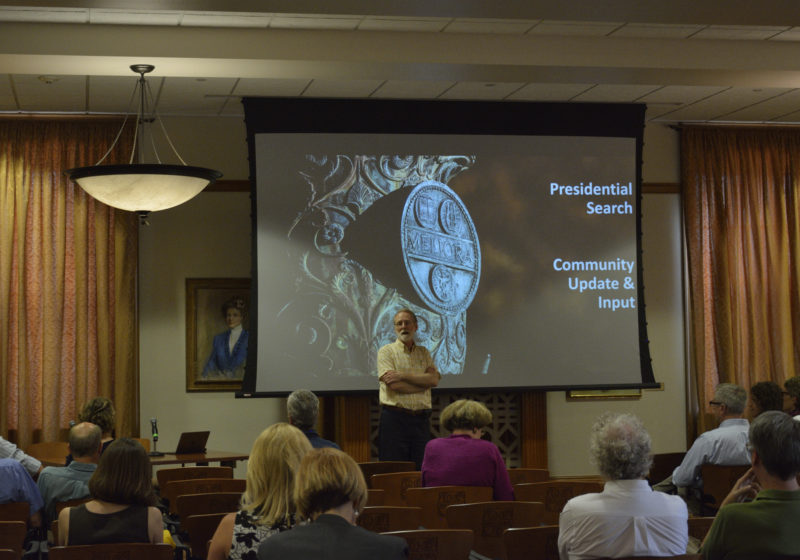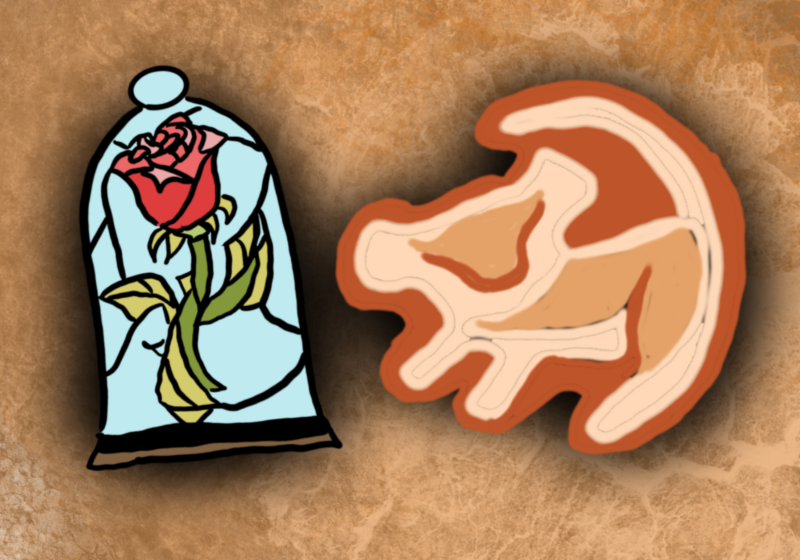Faculty emphasized the need for a transparent, progressive president with an academic background at a town hall meeting this past Wednesday.
It was the first of three faculty town hall meetings for UR’s presidential search, and was held at Rush Rhees in the Hawkins-Carlson room.
“I think going forward our new president needs to be much more transparent rather than maintaining that air of distance and confidentiality,” one professor said.
In the wake of former president Joel Seligman’s resignation in February, the Board appointed the Trustees’ Presidential Search Committee (TPSC). The TPSC then appointed three separate advisory committees composed of faculty and administrative members, senior staff members, and students, respectively.
The TPSC, with the help of a renowned search firm, looks for, evaluates, and makes the final recommendation to the Board of the future presidential candidate. Furthermore, the advisory committees gather input from the community and inform them on the process of the search, while also being active participants in the evaluation of candidates.
According to professor Michael L. Scott, who is a co-chair of the faculty and administrative advisory committee, this community input from town hall meetings will be imperative for the TPSC in their decision.
However, fewer than 40 people attended the meeting, with about half a dozen members from the different advisory committees present primarily to listen. There were no members from the TPSC or the search firm present at the meeting, which upset many faculty members.
“As much as the Board of Trustees may be receptive to hearing about our opinions, it sounds like until somebody is in the room with the faculty, that’s hard to believe that they are actually going to hear the opinions no matter how much we feel represented,” professor Joel Burges said. “So maybe a characteristic of the next president would be somebody who would be willing to be present and make the Board be present to these kinds of meetings.”
The meeting was framed by three questions. These were the qualities about UR that would attract a candidate to want to be president, the major challenges they would face, and characteristics the community would want to see in the next president.
The past sexual harassment investigations were brought up multiple times as something the next president would immediately face.
“There are large undissolved issues that have led to this taking place that still haven’t been nearly adequately addressed in any way, shape, or form,” one professor said. “I’ve heard almost no apologies to the people who have suffered wrongs. The people who committed wrongs haven’t lost their jobs, and the people who have suffered wrongs have.”
Some attendees agreed that the next president should turn this challenge into an opportunity to rethink UR’s policies and culture, as well as the distribution of power.
“For me, the absolute necessity would be a president who is actually open to putting in place more democratic structures and decision-making,” one professor said. “As long as there is this growing power imbalance throughout the institution, the scope for abuse […] kills the general spirit of the institution.”
The liberal arts education tied in with the high emphasis on research with a major hospital down the road were mentioned as attracting candidates to UR.
History professor Joan S. Rubin explained the president therefore should not have a “one-track vision” and should value all disciplines including “humanities, arts, and humanistic social sciences” when it comes to fundraising.
Other suggestions and characteristics made by the faculty were to tap more into the resource of alumni, to aspire to unify the different disciplines and campuses, and to speak of the Paul Burgett.
But the suggestion of next president to be more present drew the strongest reaction.
“[Someone] who is willing to walk around the University down to the people who clean the bathrooms and talk to them once in a while,” one professor said.
Over the next week, the different advisory committees will be having more town hall meetings.
According to Scott, they currently have a “nice pool” of “interesting and talented” candidates which cannot be revealed to the public due to the fear of losing them if their identities were not kept private.
Through the fall, these candidates will go through rounds of in-person interviews with the TPSC and the advisory committee. The TPSC is expected to announce the final candidate to the public early next semester, giving that candidate a six-month transition period to start effective immediately on July 1st, 2019.





